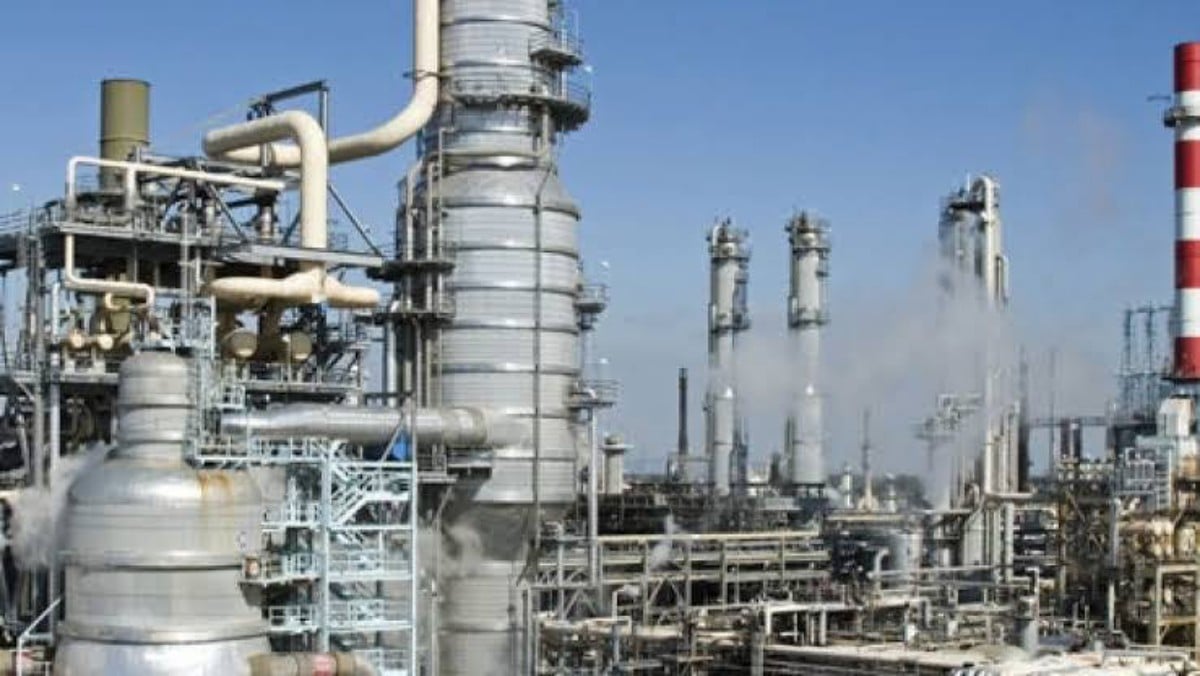Business
Petroleum;Nigeria Produced 1.48mbpd in June, Lowest in Recent Times.

Notwithstanding rising oil costs and openings for further developed profit, Nigeria’s ability to exploit the assembly remains subverted by the Organization of the Petroleum Exporting Countries’ (OPEC’s) standard and neighborhood challenges, as the nation siphoned 1.48 million barrels of unrefined in June.
As per the most recent S&P Global Platts review, Nigeria posted the heaviest drop in yield in June, because of critical functional issues, contrasted with 1.55 million recorded in May.
The overview showed that the nation created 1.48 million of crude oil in June, its most minimal level since January, as a portion of its huge oil fields, particularly those in the Niger Delta like Bonny, Escravos, Brass River and Qua Iboe, are siphoning great underneath their full limit because of either specialized issues or maintenance.
Nigeria’s production volume is below the 2021 budget estimate for the year, thus affecting the capacity to earn more, alongside subsidy challenges.
Indeed, OPEC’s 13 members pumped 26.19 million barrels per day in June, up 480,000 bpd from May, mostly due to Saudi Arabia’s continued unwinding of its voluntary extra production cut.
The group’s nine non-OPEC partners, led by Russia, produced 13.27 million b/d, a rise of 60,000 b/d from May.
Despite the production gains, higher quotas for the month meant OPEC+ compliance was at 110.16% compared to 111.45% in May, the survey found.
The coalition has now added 970,000 b/d in the past two months, as parts of its plans to relax its output quotas to meet the growing demand for its oil.
But a bitter feud between emerging rivals Saudi Arabia and the UAE could put an end to that, with a deal to raise output by 2 million b/d between August to December in jeopardy. The dispute, which a week of negotiations has so far failed to resolve, could cause the OPEC+ alliance to leave quotas flat after July, potentially squeezing an already tightening the market through the rest of the summer.
But it could also lead to sliding compliance, if not an outright price war, if the dispute escalates, some analysts say.
Ministerial talks are currently suspended, with the UAE not budging from its stance that its output target should be revised as a condition of continuing the OPEC+ supply management pact to the end of 2022 and Saudi Arabia insisting that the production rises and the extension remain tied together, according to delegates.
The Group Managing Director of Nigerian National Petroleum Corporation (NNPC) Mele Kyari, had said that oil prices were “very high” and had started to constrain both producers and consumers.
See also Presidential Economic Advisory Council Advices the President to Remove Subsidy on Petrol
“Producers are aware that when your prices are too high, you lose your customers. You have to bring it to a level that your customers can afford,” Kyari said during a television interview.
Oil prices have risen more than 50 per cent in 2021, amid a recovery in demand buoyed by vaccine rollouts and OPEC+ supply discipline.
“The only way to pull down prices is to increase supply. So, that is what is going to happen. OPEC is going to intervene to see how we can bring down prices,” Kyari said.
Kyari said the rise in oil prices was hurting Nigeria, which relies heavily on fuel imports for its needs.
However, Nigeria has four refineries with a combined nameplate capacity of 445,000 b/d, which are all offline after years of neglect, making the country fully reliant on refined product imports.





